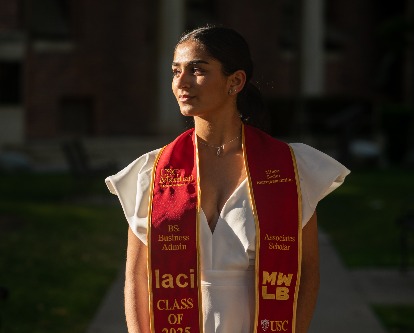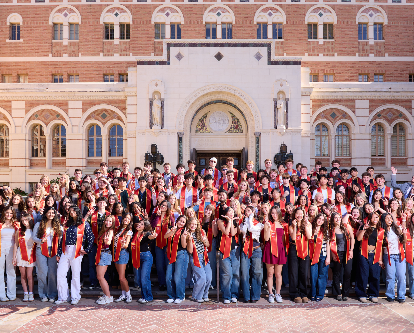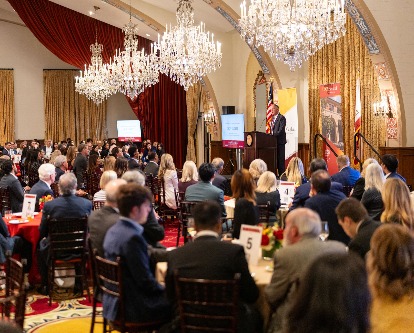
All Nick Toso wanted was to be more productive at his job as a journalist. But he had to become an entrepreneur to do so.
Not long after graduating from Boston University, Toso joined CNN as an entry-level producer for its Spanish language edition. He loved the work: the fast pace, the mission, even the deadlines. Within three years he’d become the Washington D.C. Bureau chief for CNN en Español.
With that kind of experience, he knew better than anyone the particular pain point journalists experience every day: the never-ending need to find credible experts on deadline.
“It’s real hard to find the best subject matter experts around on a tight deadline,” he said. “Every day you need an accurate and credible expert.”
Meanwhile, newsrooms around the country were hemorrhaging workers. Since 2008 newsroom employment has dropped by 26 percent, according to the Pew Research Center. While broadcast jobs have remained stable over the same period, now holding just underneath total newsroom jobs, digital outlets have exploded.
The field isn’t dying, said Toso, but it’s changing, fragmenting. Everyone in the business, be they writers or producers or podcasters or Youtubers needs access to experts that will make their content useful. There had to be a better way to identify expert sources and connect them with legitimate media producers.
Toso wondered why he couldn’t leverage technology to help make everybody’s job easier. “There were no tools,” he said. “We felt like nobody was creating an opportunity for us, as journalists, to help us get our jobs done. So, I decided I’d have to create one for us.”
But while he understood the media eco-system, he wasn’t clear on how exactly to build and launch a business. So he decided it was time to return to school for an MBA.
“The media has not done a great job at explaining what it is we actually do. We have allowed TV and film to sensationalize our industry and in turn present a narrative which is not accurate. As a founder, if I can bring some transparency back into the media industry, mission accomplished.”—Nick Toso EMBA '19, founder, Rolli.
USC was the only school on his list and he knew he’d need a media-heavy market to launch. He was familiar with the Annenberg School of Communication and Journalism, but it was Executive MBA Program at the Marshall School that really appealed. He matriculated in August of 2017.
His instincts were right. Marshall turned out to be the right choice when it came to learning how to be an entrepreneur, Toso said. “I came in with this crazy idea and found all the resources I could ask for along with a nurturing and encouraging environment.” He took advantage of the Greif incubator, and a number of student pitch competitions, even participating in a recent Demo Day.
Flipping through the Rolodex
His company, Rolli (rolliapp.com) is a searchable digital platform that enables journalists and media producers to identify the best expert source for any story, instantly. Experts, who pay a yearly subscription fee to be included (after they are vetted and approved) are incentivized to spend some time setting up their profiles for optimal results. “You set in and forget it,” said Toso. “And if you’ve done it well it can generate hits for years.”
The name itself harkens back to the golden age of newsrooms, when a reporter was only as good as his or her Rolodex—that once ubiquitous round filing device filled with a reporter’s carefully curated sources.
For the media eco-system, the platform is a win-win. For media professionals, it offers a vetted list of experts ready and eager to speak to the media. For “experts,” (think academic researchers, institutional professionals, authors, all manner of subject manner experts) it’s a platform for wider exposure via vetted media organizations. Organizations too can add their experts to the database.
Toso says the service acts as a complimentary service to what media relations teams at, say, an agency or a university, might offer. Currently in Beta, the platform has about 1,500 experts and over 500 journalists. The service is free to media producers and journalists. “It doesn’t benefit to keep these experts closeted away,” he said. “Society benefits from the world’s best experts.”
Besides making it easy for an overworked reporter on deadline to find the perfect source for the story, Rolli aims for a higher mission: Demystify how the media works, and in doing so, perhaps help it mend its reputation.
“The media has not done a great job at explaining what it is we actually do. We have allowed TV and film to sensationalize our industry and in turn present a narrative which is not accurate. As a founder, if I can bring some transparency back into the media industry, mission accomplished.”
Rolli went live with its beta in February 2020. While that may seem like bad timing it gave Toso the time he needed to concentrate on growing the platform. Toso, along with his partners, a group of journalists, developers and designers, plan on releasing the full platform functionality as well as a mobile version in the late summer of 2022.
“The power of a platform like Rolli is in ensuring better content,” said Toso. “When you have good, trustworthy content, you have more readers, more subscribers. It’s a virtuous circle.”




